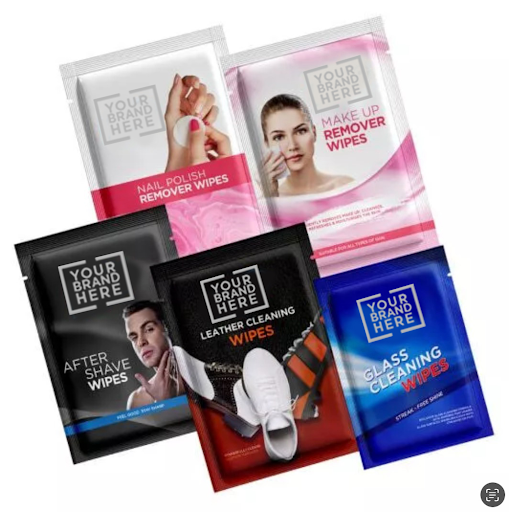In the busy society, tissue wipes have become an important element of daily hygiene in homes as well as in businesses. The importance of being acquainted with the safety considerations of people having sensitive skin has been amplified and by having the producers and the dispersers in the personal care industry continuing to add new items to their rosters. This thorough post of tissue wipes‘ safety for sensitive skin applications offers insightful information to business-to-business stakeholders in the production and distribution industries.
Recognizing Sensitive Skin and Its Difficulties
Sensitive skin is a condition that is shared by a vast proportion of persons who happen to reside on this side of the globe and sensitive skin is the condition that makes a person very sensitive to certain environmental impacts, chemicals, and substances. Appreciating these sensitivities could be important for manufacturers of high-end products of wet wipes to formulate products that would attract this large market segment. Sensitive skin normally has symptoms such as burning, itching, irritation, and redness upon exposure to certain substances or materials.
The challenge to manufacturers has been to make the right balance between being tender and effective. Consumers want solutions that clean better, but people with sensitive skin need formulations that reduce the possibility of negative responses. As a result, third-party manufacturing services have a rare chance to produce niche product lines that meet these particular demands while still being profitable.
Important Components for the Production of Tissue Wipes
Those who produce tissue wipes to be used in working with sensitive skin should be very sensitive about the ingredients they use. Sanitizing products based on alcohol should also be avoided because they are quite potentially irritating to individuals with delicate skin. Water-based formulas with mild cleaning ingredients, on the other hand, offer a safer substitute without sacrificing cleaning effectiveness.
Another important factor in the production of premium wet wipes products is the use of fragrance enhancers. Even though desirable fragrances enhance the experience of a user, some of the most frequent factors that lead to sensitive skin include synthetic perfumes. To minimize the exposure to the risk of discomfort, manufacturers are recommended to employ naturally obtained, hypoallergenic components of aroma or to investigate fragrance-free ones.
Preservatives which are important in stability and safety of products should be selective. Sensitive individuals have the ability to react against traditional preservatives such as formaldehyde-releasing agents and parabens. More gentle solutions that preserve product integrity and lower the risk of sensitization are provided by contemporary preservation systems.
Safety testing and regulatory compliance
The knowledge of legal requirements in distinct markets is an important parameter for manufacturers and distributors in the business-to-business (B2B) industry. The personal care products that include tissue wipes used by sensitive skin are targeted in regional legislations. In addition to guaranteeing market access, adherence to these rules shows a dedication to consumer safety.
An essential part of product development for applications involving sensitive skin is dermatological testing. Manufacturers can use the useful information provided by patch testing, irritant studies, and hypoallergenic testing to evaluate their formulations and substantiate marketing claims. For the sake of their customers, third-party manufacturing services frequently keep up connections with accredited testing facilities.
Targeting markets with sensitive skin makes documentation and traceability even more crucial. Having complete records of how the ingredients are sourced, the production processes, and the test results make addressing any safety concerns promptly easy and useful in the endeavour to meet the regulatory standards.
Preventing Cross-Contamination in Multi-Product Establishments
In addition, many third-party manufacturing plants produce numerous products, such as bleach toilet cleaner, along with a diversity of home chemicals, in addition to personal care products such as tissue wipes. To assure the safety of formulations in sensitive skin, one has to avoid cross-contamination of different types of products.
To avoid the residues of strong chemical detergents, like bleach toilet cleanser, polluting mild, high-value wet wipes products, tough segregation is done, dedicated production lines, and comprehensive cleaning procedures between product runs are implemented. For manufacturing partners catering to the sensitive skin market niche, this operational competence turns into a crucial difference.
Conclusion:
Manufacturers and distributors have a lot of potential as a result of the increased awareness of sensitive skin disorders. Designing a proprietary tissue wipe for this segment market will attract loyal customers unable to locate the right products and demand high pricing.
Pre-marketing of wet wipes products on sensitive skin needs to sensitize the end user to the safety of the product and its use. B2B partners may collaborate and develop educational material to present their products as safe and convenient solutions, and help guide intelligently.v

